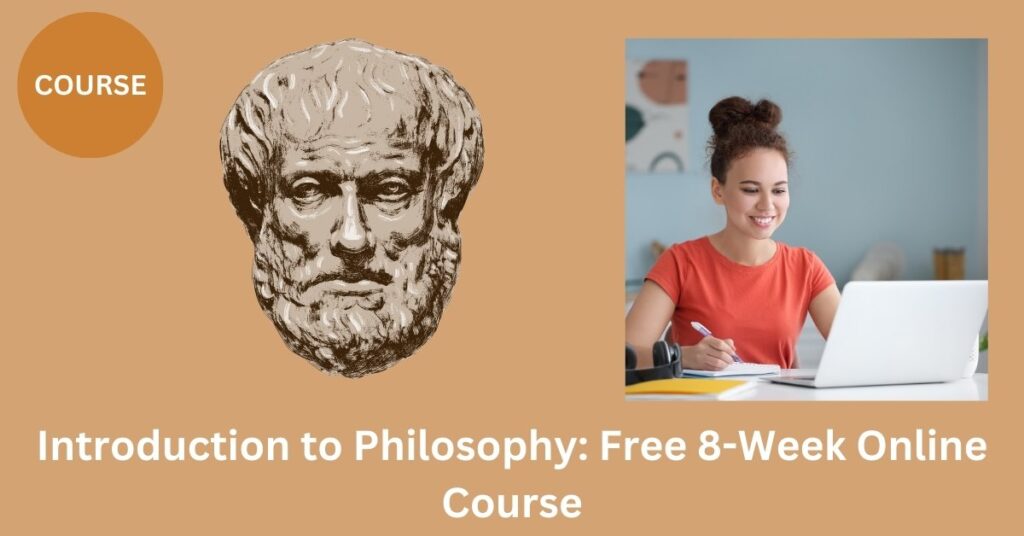Have you ever wondered how designing your lifestyle can lead to a more meaningful life? Many people who study philosophy to enrich their lives may not fully grasp why lifestyle design is crucial to Tim Ferriss’s ideas. Understanding this concept can significantly enhance the way we apply philosophical insights in our quest for a fulfilled life. In the coming sections, we will dive into Tim Ferriss’s perspective on lifestyle design and explore its importance in the philosophical journey toward a more rewarding and purposeful life.
Key features of the views of Tim Ferriss
Tim Ferriss is recognized for his unique perspectives on productivity, lifestyle design, and personal development. An advocate of the ‘4-Hour Workweek,’ Ferriss emphasizes optimizing efficiency and leveraging technology to minimize work hours, thereby freeing up time for personal pursuits. Ferriss advocates for the Pareto Principle, suggesting that 80% of results often come from 20% of efforts, encouraging individuals to focus on high-impact activities. He also champions the concept of ‘mini-retirements,’ short breaks taken throughout life rather than postponing all leisure to traditional retirement years. Ferriss stresses the value of learning and experimenting, often sharing his methods for acquiring new skills quickly and effectively. His interviews on “The Tim Ferriss Show” podcast highlight strategies and insights from top performers across diverse fields, offering listeners practical tools for self-improvement. A proponent of self-experimentation, Ferriss continually refines his approaches to fitness, diet, and various life challenges, encouraging others to adopt a similar experimental mindset. Central to Ferriss’s philosophy is the pursuit of a balanced life, where productivity is not just about work but also includes health, relationships, and personal fulfillment. Through his books, talks, and media, Ferriss inspires a rethinking of traditional work-life paradigms, aiming to empower individuals to create a life that aligns with their personal values and goals.
What is the idea of lifestyle design?
Lifestyle design is a philosophical concept that revolves around the intentional and conscious creation of one’s life path, guided by personal values and desires rather than external societal pressures. At its core, this idea prioritizes individual autonomy and self-determination, emphasizing the inherent freedom one possesses to shape their own existence. Lifestyle design challenges the traditional, linear pathways that are frequently dictated by societal norms, advocating instead for a personalized approach where the individual’s voice and aspirations take precedence. This philosophical stance recognizes the multiplicity of human desires and acknowledges that fulfillment is a deeply personal journey, unique to each individual. It invites a self-reflective process where individuals assess their true interests, passions, and life goals, thereby fostering a life that resonates authentically with their inner self. By recognizing the diversity of aspirations and the legitimacy of pursuing a path that may diverge from mainstream expectations, lifestyle design champions the concept of living a life attuned to personal truth. This not only necessitates a deeper engagement with one’s own beliefs and values but also an understanding of the freedom to craft a life that is an expression of these insights. Ultimately, lifestyle design offers a philosophical foundation that supports the quest for authenticity, encouraging an exploration of life that is intimately aligned with individual choice and personal fulfillment.
Emily decided to break away from the typical corporate career path that many of her peers followed. Instead, she pursued her passion for sustainable farming. While society often values high salaries and traditional career progression, Emily was drawn to the idea of autonomy and self-sufficiency. She invested in a small piece of land outside the city and devoted herself to learning eco-friendly farming techniques. As she cultivated her farm, she found immense satisfaction in producing organic vegetables and fruits, not only nourishing her community but also living sustainably. Emily’s lifestyle choice allowed her to align her daily activities with her values, prioritizing environmental stewardship and personal well-being over societal expectations. Despite occasional doubts and pressures from family and friends, Emily embraced her unique path, feeling more fulfilled by living a life that truly resonated with her identity rather than conforming to conventional standards.
The philosophical idea that lifestyle design, as a deliberate creation of life based on personal preferences rather than societal norms, holds significance is rooted in notions of individual autonomy and self-fulfillment. Proponents argue that designing one’s lifestyle empowers individuals to align their daily activities with their values, passions, and goals. This process is seen as a means of achieving genuine happiness, as it allows for self-expression and authenticity. It emphasizes a break from traditional constraints and expectations, encouraging a life that is crafted uniquely to one’s desires.
In contrast, the perspective that lifestyle design is not important suggests that focusing too heavily on individual preferences might overlook the social and communal aspects that contribute to a well-rounded life. Critics of this approach may argue that while personal freedom is valuable, societal norms and expectations provide a framework of stability and shared meaning that can contribute significantly to one’s sense of belonging and purpose. They contend that ignoring these elements could lead to a sense of isolation or detachment from the broader community. Additionally, adhering to shared values and roles is seen as a way to contribute constructively to society, increasing the sense of collective well-being. Through these contrasting views, the debate highlights the tension between individual freedom and community coherence in the discourse on lifestyle design.
Lifestyle design and the views of Tim Ferriss
- Emphasis on Freedom and Flexibility
Tim Ferriss, in his various works, often champions the idea of gaining freedom and flexibility as a core benefit of embracing lifestyle design. By prioritizing one’s personal goals and desires over traditional career paths and societal expectations, individuals can tailor their lives in a manner that maximizes their personal satisfaction. Ferriss argues that conventional work structures often bind people into inflexible patterns that stifle creativity and limit opportunities for self-fulfillment. By exploring alternative ways of living, such as remote work, entrepreneurship, or adopting minimalist lifestyles, people can free up time and resources to pursue their genuine passions. This ideological pivot allows individuals to engage in meaningful activities that align with their personal values, rather than succumbing to the societal demands of a 9-to-5 job. In doing so, Ferriss believes individuals will not only achieve greater work-life balance but also experience heightened productivity and innovation, contributing further to their personal and professional growth.
- Focus on Experiential Learning and Growth
Another significant aspect of Tim Ferriss’s approach to lifestyle design is the emphasis on experiential learning and personal growth. Ferriss advocates for an educational path that evolves from real-world experiences rather than traditional classroom settings. This mindset promotes learning through travel, experimentation, and taking on new challenges that test one’s comfort zones. By stepping away from predefined societal norms and pursuing personalized experiences, individuals can develop a greater understanding of themselves and the world around them. This break with convention helps foster adaptability and resilience, equipping individuals with the skills necessary to navigate an ever-changing global landscape. Ferriss believes that by engaging in diverse experiences, people can cultivate a more profound sense of purpose and fulfillment, as well as a broader range of skills that contribute to personal and professional success.
- Valuation of Time as a Non-Renewable Resource
Tim Ferriss places a considerable emphasis on the valuation of time, advocating that it should be treated as a highly precious and non-renewable resource. In this context, lifestyle design becomes a crucial tool for reassessing how one spends their time and ensuring that it aligns with personal priorities and desires. Ferriss suggests that many traditional career paths encourage time-consuming practices that may not contribute to an individual’s long-term happiness or goals. By embracing lifestyle design, individuals can critically evaluate how they allocate their hours and actively eliminate activities that sap their energy without adding value to their lives. This reallocation of time supports the pursuit of experiences and projects that offer deeper satisfaction and contribute to an individual’s sense of purpose. Through this redefinition of time management, Ferriss aims to inspire others to live intentionally and strategically, optimizing their time to cultivate richer and more meaningful life experiences.
A philosophical contrast: Kant’s views
The acceptance of lifestyle design as a philosophical idea fundamentally differentiates Tim Ferriss’s views from traditional philosophical perspectives, such as those espoused by Immanuel Kant, who emphasized duty and societal obligations. Kant’s philosophy, known as deontological ethics, prioritizes actions aligning with moral duty and the categorical imperative over personal preferences. In contrast, lifestyle design, which encourages individuals to craft lives based on personal desires and interests, steers away from conventional societal roles and obligations, focusing instead on individual happiness and fulfillment. This shift underscores a significant philosophical divergence, where the focus moves from adhering to predetermined societal expectations to pursuing a path that aligns with one’s values and passions. While Kantian ethics might argue for living in a way that upholds a universal moral law, lifestyle design champions the importance of self-realization and personalization. This contrast highlights the evolution of thought from collective societal duties to individual empowerment and self-directed life paths, illustrating a contemporary reassessment of what constitutes a meaningful and ethical life. Embracing lifestyle design encourages people to explore varied interpretations of success and happiness, contrasting markedly with Kant’s structured view of morality and duty within society.
Lifestyle design and th meaning of life
Reflecting on the philosophical notion of lifestyle design, where individuals curate their lives based on personal preferences rather than societal norms, is crucial for several reasons. Firstly, it encourages self-awareness and introspection. By considering what truly matters to us, we are more likely to identify our core values and priorities, leading to a life that is more authentic and satisfying. This reflection prompts us to question the status quo and challenge societal pressures that may not align with our personal desires, leading to increased fulfillment and well-being.
On the other hand, examining why lifestyle design might be deemed unimportant is equally significant. For many, stability and structure provided by adhering to societal norms offer comfort and predictability. Questioning these expectations can seem daunting, leaving individuals feeling unmoored and without a clear path. Reflecting on this perspective can highlight the merits of tradition and the shared values that hold communities together. Such discussions underscore the importance of balance and the potential risks involved in eschewing collective wisdom in favor of individualistic pursuits.
Finally, the views of Tim Ferriss hold practical importance as we seek to live more meaningful lives. Ferriss, through his focus on lifestyle design, invites individuals to critically evaluate how they spend their time and align their daily actions with their overarching life goals. His emphasis on efficiency, productivity, and automating mundane tasks offers a blueprint for individuals to focus more on what brings them joy and purpose. Reflecting on his approach can empower people to make conscious decisions about their lives, promote personal growth, and cultivate happiness as they navigate through their personal and professional endeavors. Thus, by considering both the advantages and potential drawbacks of lifestyle design, as well as Ferriss’s practical insights, individuals can strive for a more balanced, fulfilling life.


